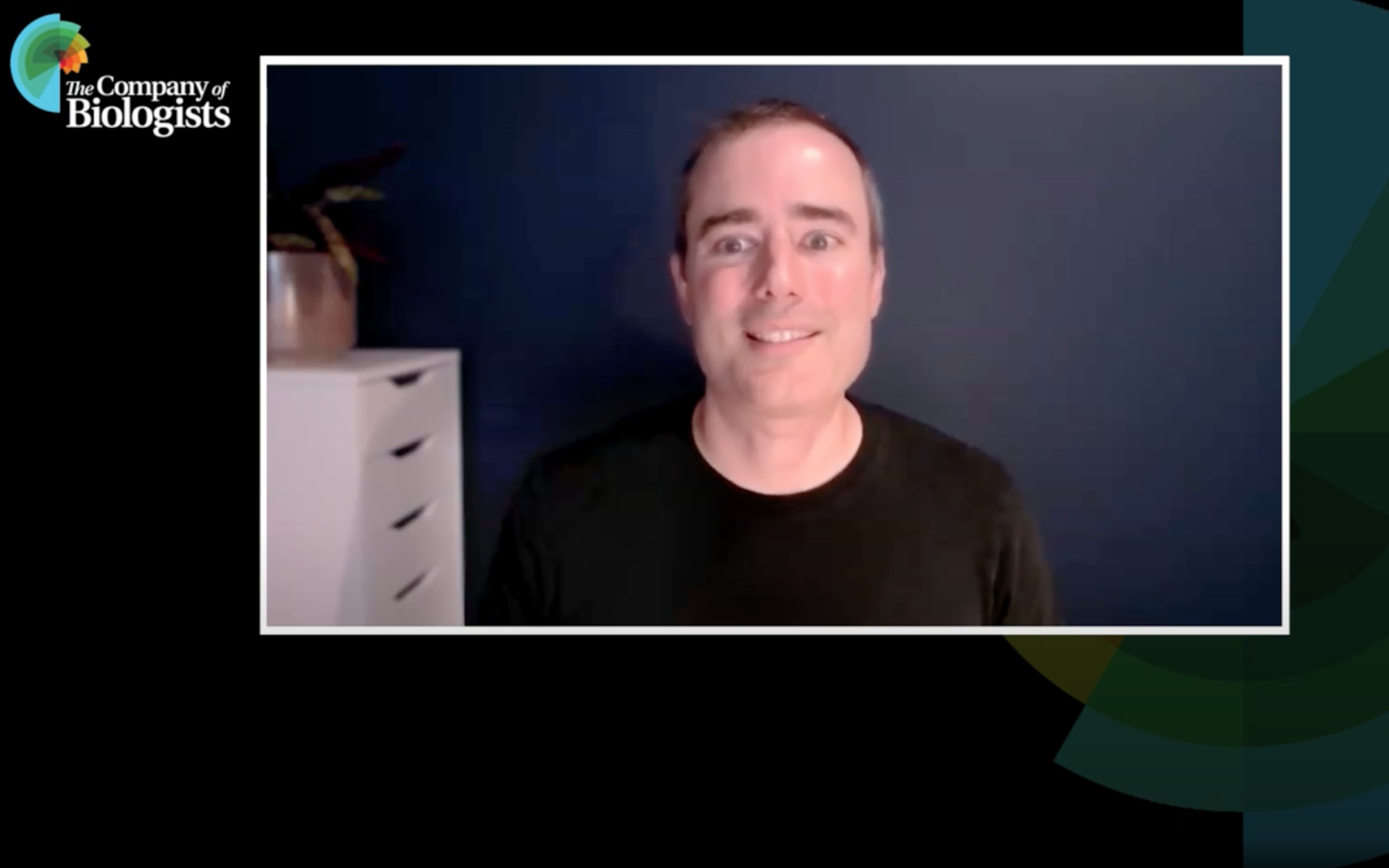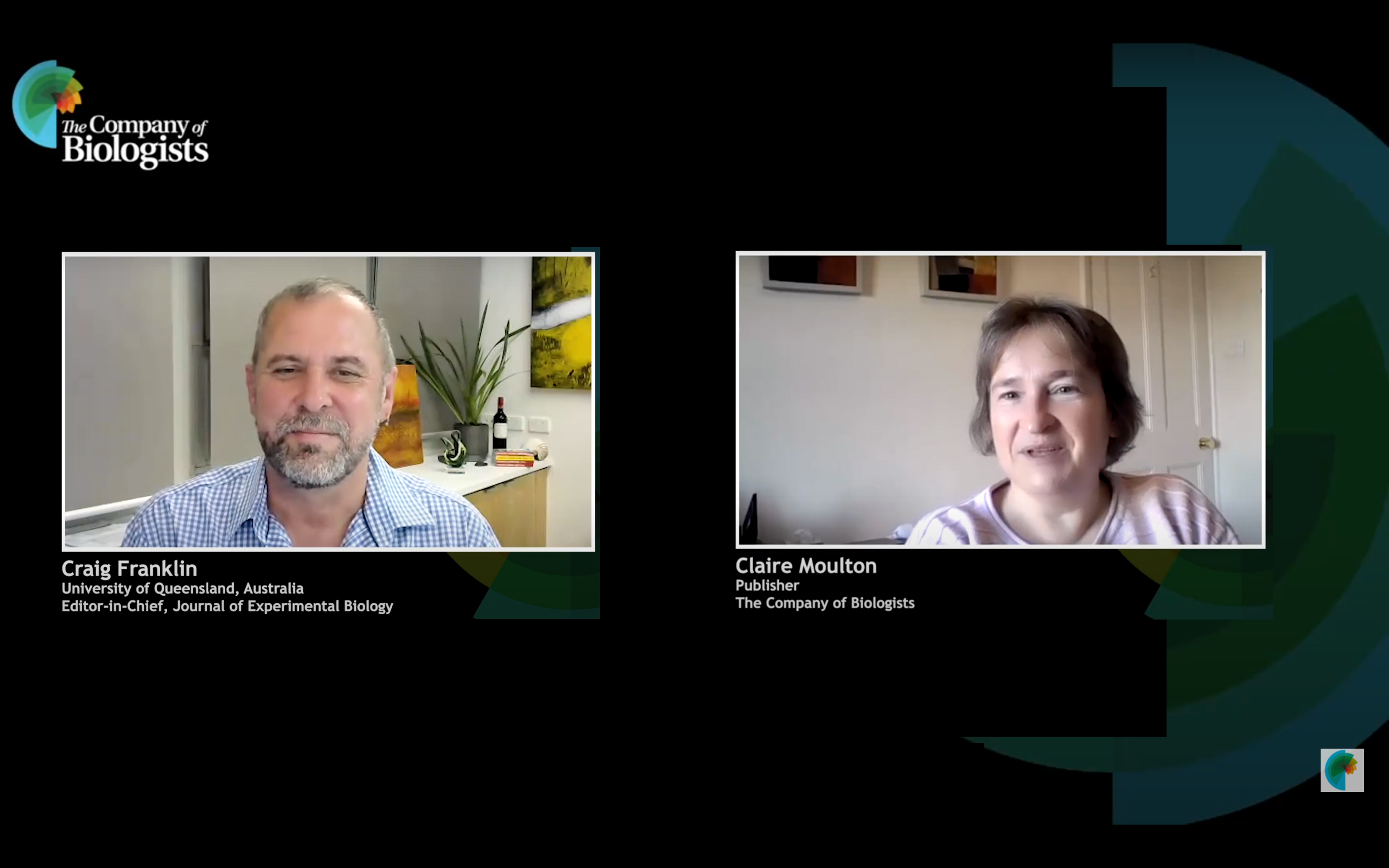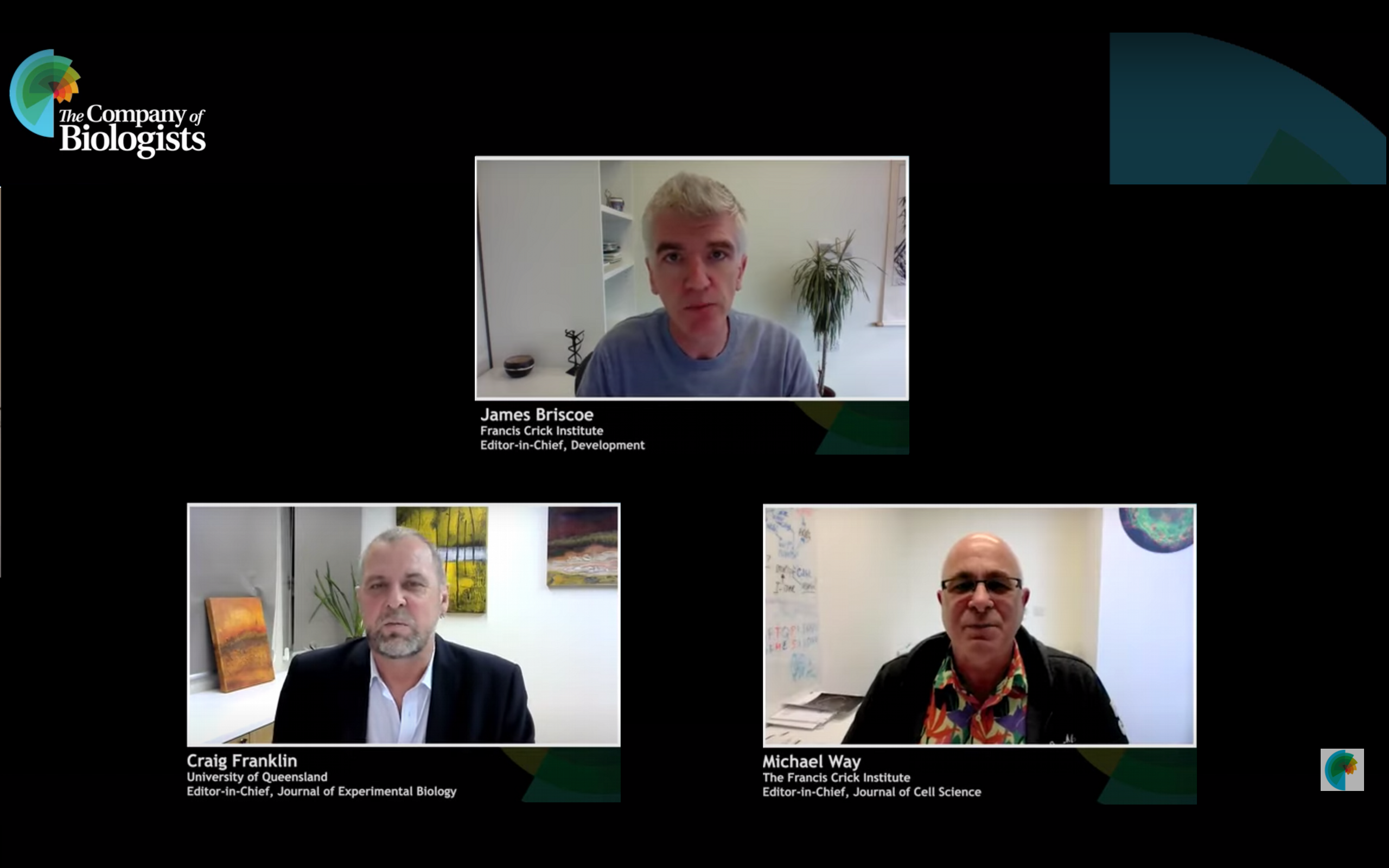James Briscoe on Read & Publish
James Briscoe (Editor-in-Chief of Development) talks to Claire Moulton (Publisher at The Company of Biologists) about the benefits of Read & Publish agreements and how they are helping to increase the proportion of Open Access content in his journal.
Transcript
Claire Moulton: During 2020, our three hybrid journals Development, Journal of Cell Science and Journal of Experimental Biology became the first ever Transformative Journals.
Claire Moulton: This means that they will make a more active push towards Open Access in the coming years.
Claire Moulton: I'm here to explore this strategy in more detail, and to talk with James Briscoe, Editor-in-Chief of the journal Development, and Senior Group Leader at The Francis Crick Institute in London.
Claire Moulton: So James, to start, what do you see as the benefits of Open Access publishing?
James Briscoe: Well, I think it's fantastic for authors.
James Briscoe: It means that immediately you publish your work it's accessible to everyone, from the moment it's published.
James Briscoe: And as a reader, it means you have access to that content, whether you're accessing it from your institution or from home or when you're travelling.
James Briscoe: So it just makes the work much more available, much more freely available, immediately it's published.
Claire Moulton: And as Transformative Journals, we're aiming to grow the percentage of Open Access research content in our journals by at least 5% each year, and we believe that Read & Publish agreements are going to be one of the key factors in this Open Access growth.
Claire Moulton: A Read & Publish agreement is basically an agreement between The Company of Biologists and a library or consortium, and it has two components.
Claire Moulton: In the “Read” component, it means that all of the readers in the institution can access the content, including all the way back into the archives.
Claire Moulton: So it's very similar to a subscription.
Claire Moulton: And then the “Publish” component of the agreement allows corresponding authors at that institution to publish an unlimited number of Open Access articles without having to pay an additional Open Access fee.
Claire Moulton: So The Company of Biologists has signed Read & Publish agreements in many countries, and momentum is growing.
Claire Moulton: So James, how do you see these Read & Publish agreements benefiting the research community?
James Briscoe: Well, I think in a number of ways. I think for start it means as an author, when you publish your work through a Read & Publish agreement, it's much easier to do.
James Briscoe: You don't have to worry about filling in the forms for the APC, the Open Access charge, and your work is immediately available as Open Access.
James Briscoe: Then as a reader, it also means that we have access to all of the content from The Company of Biologists, as you say, dating right back into the archive.
James Briscoe: So it makes access to that material much easier.
Claire Moulton: And your own Institute, in fact, the Francis Crick Institute has also got a Read & Publish agreement.
Claire Moulton: How does that benefit you personally as an author?
James Briscoe: So, as an author it’s going to make it much easier.
James Briscoe: As a corresponding author, anything I publish will be covered by the Read & Publish agreement, meaning I won't have to pay separate Open Access charges and I also won't have to fill in the paperwork every time we publish a paper with one of The Company of Biologists’ journals.
Claire Moulton: So we can see that librarians are putting in place Read & Publish agreements that are good for authors, good for journals, and good for science.
Claire Moulton: And it's important that we can offer these sorts of agreements to a wide range of libraries and consortia, not just those in the richer countries.
Claire Moulton: So we're also delighted that we have a Read & Publish agreement with EIFL, which supports access and Open Access publishing from developing and transition economies.
James Briscoe: Yeah, I think that's fantastic news, because it really emphasises the global nature of research.
James Briscoe: And I think Read & Publish agreements are one example of how we can democratise access to research.
Claire Moulton: Brilliant. Thank you very much, James.
James Briscoe: Thank you.










